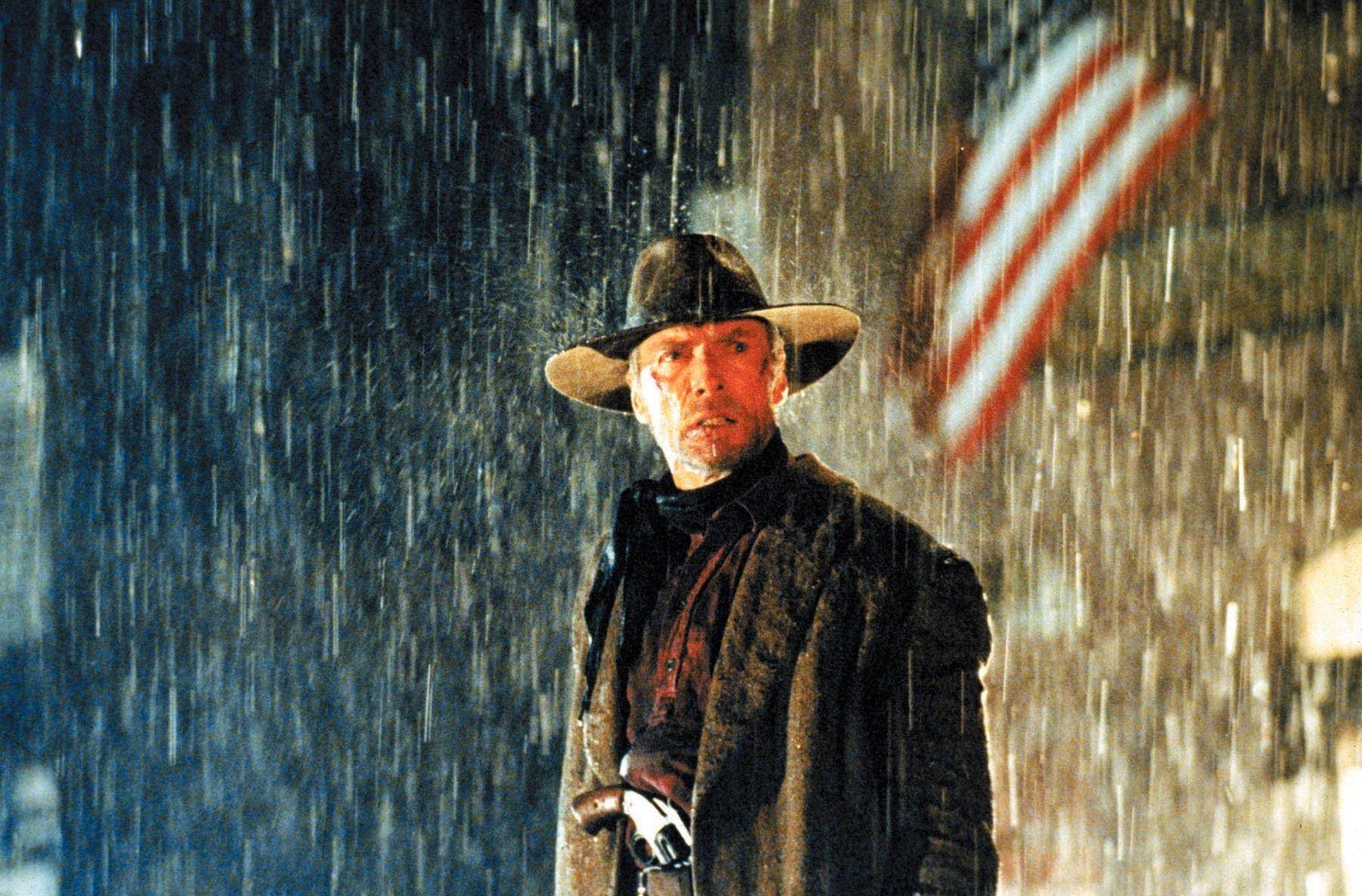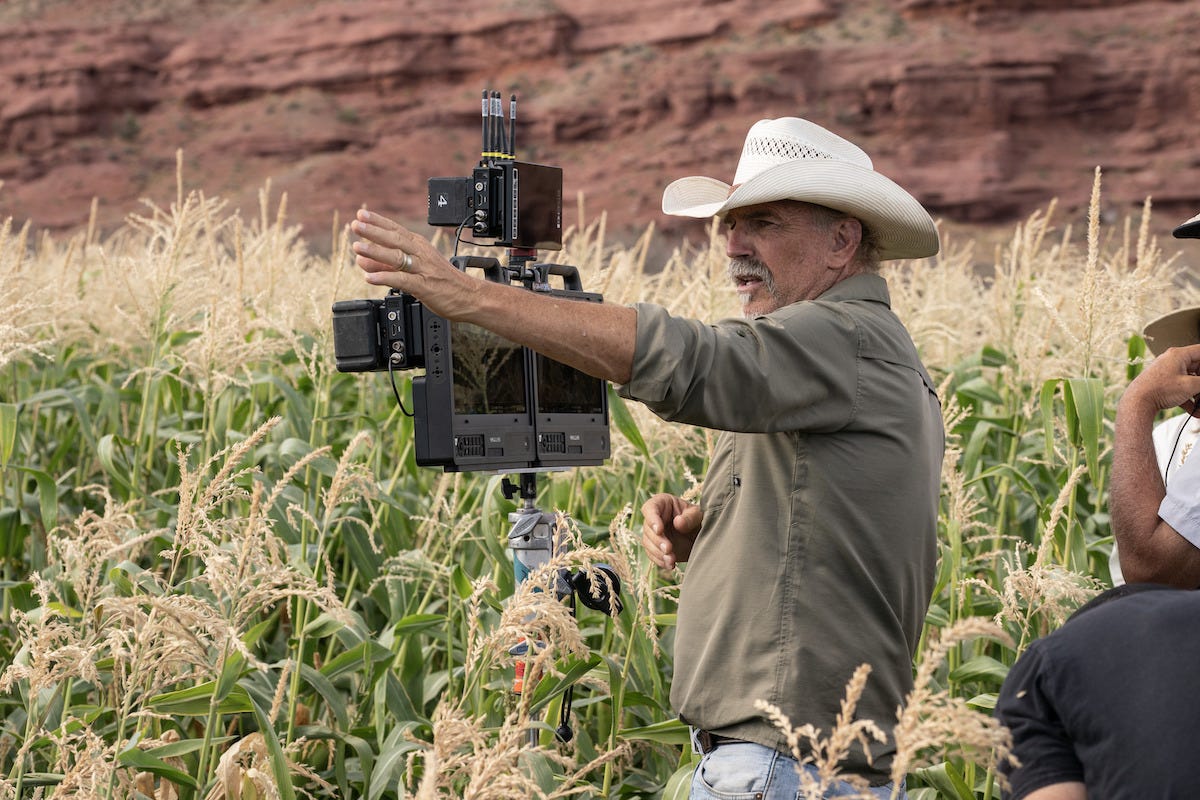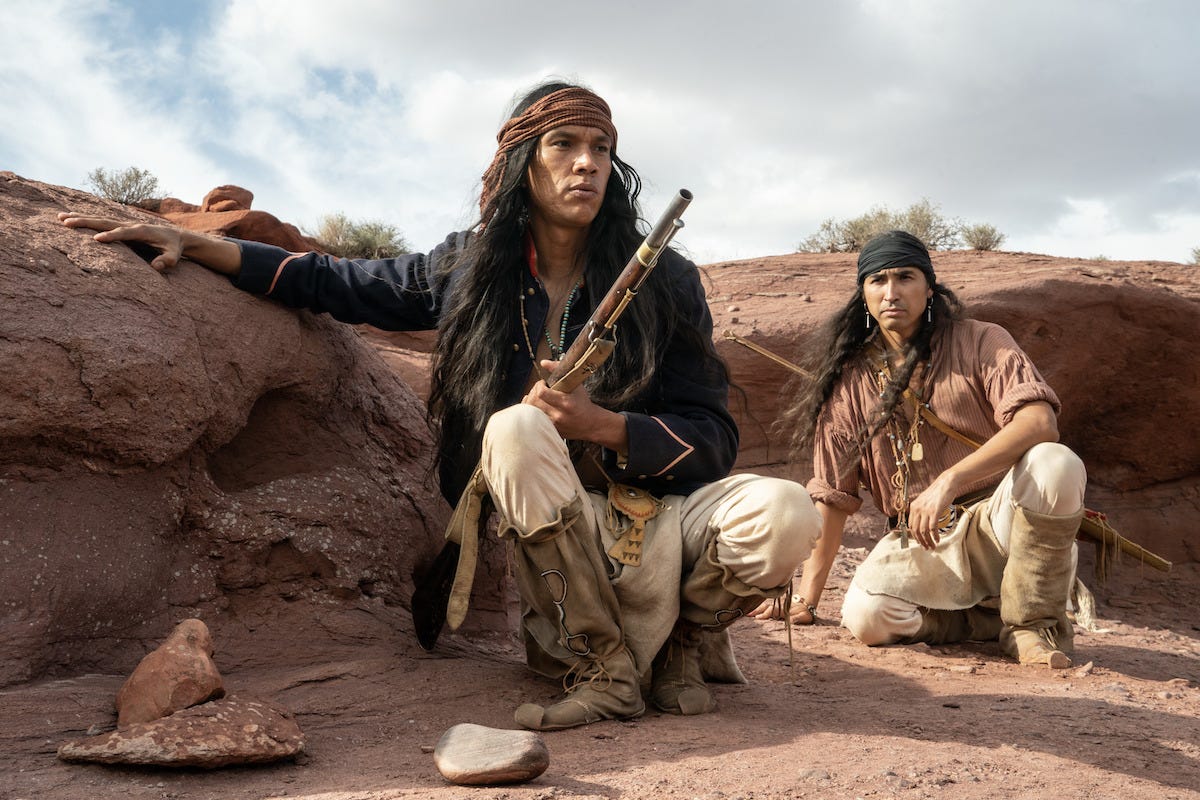Look, I’m not going to lie: My favorite Fourth of July movie is Independence Day, the schlocky sci-fi actioner about America using its military and technological might to exit the post-Berlin Wall, pre-9/11 vacation from history, unite the world, and take down a marauding race of alien invaders. The spectacle of seeing the White House, New York City, and Los Angeles blown to hell before America’s Armed Forces returned the favor was just what a 14-year-old Sonny needed to believe in the power of cinema. But the best Independence Day movie, for my money, is Clint Eastwood’s masterpiece, Unforgiven. Now, first, to head off the definitionally minded: At the very least, Unforgiven takes place during Independence Day. Indeed, it’s a key part of English Bob’s (Richard Harris) and Little Bill’s (Gene Hackman) characterization. Bob, the Duck of Death, rolls into Big Whiskey preaching the barbarism of the American people—who have just suffered the second presidential assassination attempt in as many decades—but consoling them that it’s not their fault, really. The issue is that we have presidents, rather than kings or queens. “There’s a dignity in royalty,” Bob tells author W.W. Beauchamp (Saul Rubinek). “A majesty which precludes the likelihood of assassination. Now if you were to point a pistol at a king or a queen your hands would shake as though palsied.” When Little Bill starts beating English Bob—nominally for violating a gun ordinance; in actuality, as a warning to the prostitutes who have offered a bounty to gunslingers willing to shoot a pair of cowboys who cut up one of their coterie—he commences to kicking by asking if English Bob has “been talking about the Queen again. On Independence Day?” It’s a tiny part of David Webb Peoples’s script. Just a few pages. Eastwood’s Bill Munny is nowhere to be found. But it says so much about the nature not only of these characters but of the nation in which they reside, the vexation it causes in citizens who take pride in having rejected being subjects. And tucked in all this is the irony of Little Bill—who has fashioned himself the king of this small town; who dispenses punishments without trial; who arranges reparations without consideration for the victims—couching his own violence against Bob in this love of liberty. (Authoritarian charlatans who cloak themselves in the language of freedom are nothing new.) Unforgiven is frequently described as a revisionist Western. Not just in the rejection of standard cowboys vs. indian tropes but in the way Eastwood uses the film to deconstruct his own image as the Man With No Name, a specter of indestructible death striding across the amber horizon. His Munny is retired at the film’s beginning. He’s chasing hogs in the mud, poorly at that. He can’t hit a can with his revolver, so he switches to a shotgun. He can’t even swing smoothly up onto his horse. Halfway through, he’s waylaid by a bout of what seems to be pneumonia. When he agrees to accompany the ‘Schofield Kid’ (Jaimz Woolvett) on his quest to pick up the bounty being offered by the whores in Little Bill’s town, he does it not for the love of killing but because he needs the cash. He’s got kids. They need to eat. His hogs are sick. What’s a man to do? The most frequently cited speech in Unforgiven comes after that bounty is claimed. The Schofield Kid is shaken by what he’s done and what he’s seen; despite his bravado, he’s never killed a man before. Munny is more thoughtful. Almost morose. “It’s a hell of a thing, killing a man. You take away all he’s got and all he’s ever gonna have,” he says, to which the Kid replies “Yeah. Well, I guess they had it coming.” And Eastwood catches his eye, gives him The Squint. “We all have it coming, kid.” A lesser movie might have left it all there, content in the lesson that, indeed, this sort of life only ends one way. But Unforgiven does not end there. Rather, Munny must return to Big Whiskey, where his friend and partner Ned Logan (Morgan Freeman) has been tortured to death in the hopes of learning who his accomplices were. And when he arrives, the shakiness has departed, the rust worn off. Bill Munny is no longer a bumbling old man stirred from retirement by the need for a few bucks. He’s a spirit of vengeance, an angel of death. He marches into the saloon and kills the men who killed his friend. He does it with skill, ease, and aplomb. He does it in a way that makes us stand up a cheer because he does it to people who have it coming and all of us know, instinctively, that some of us have it coming more than others. And then, as he exits the town, he departs with one last admonition. “You better bury Ned right. You better not cut up nor otherwise harm no whores,” he says, and Eastwood, the director, cuts to the whores as they come out to see him leave, and then Eastwood, the director, cuts back to Eastwood, the star, where he delivers the final line in the film, framed with an American flag hanging right behind him, flapping in the rain: “Or I’ll come back and kill every one of you sons of bitches.” And it’s here we see the contradiction of the film and perhaps even the American condition. Unforgiven is often pitched as a thoughtful meditation on the soul-damaging nature of violence. We, the audience, are the Schofield Kid: callow, childish, non-comprehending of the true nature of violence. The true nature of violence is often ugly and small, dudes calling for water when they’ve been gutshot or plugged while unarmed and sitting in an outhouse. And yet, the action closes with a bravura sequence of rousing, righteous violence, the threat of more justifiable retribution on the horizon if those threatened with it don’t act right, don’t behave in accordance with our will. It’s a hell of a thing, killing a man. But some men just need killin’. It’s been a heck of a week around these parts, and I appreciate you taking some time on the Fourth of July (or later, if you stayed away from your inbox!) to read this. If you enjoy it and the rest of the work we’re doing, consider picking up a paid membership. You can comment on this and all our other newsletters and pods, watch the livestreams, and enjoy everything else we have on offer. Sign up now and you’ll get a free month, which takes you a quarter of the way to the general election. Horizon: An American Saga—Chapter 1 is not, strictly speaking, an Independence Day movie. But it is a deeply American movie, at least in the sense that it is about the foundational American drive to expand. In case you didn’t understand the point of the film—in case the very title, Horizon, was almost too literal for you—Col. Albert Houghton (Danny Huston) explains it about midway through, as he tries to answer a subordinate who wonders why settlers continue to flock to a town that has already been wiped out once and attacked again by Apache braves. Just as the colonials came to America centuries earlier in search of land, these settlers will continue going west. “You and I are standing guard on one of the last great open spaces,” Houghton tells Trent Gephart (Sam Worthington). A flood of people is coming. You can kill them, but more will follow. “These people think that if they’re tough enough, smart enough, mean enough … all this will be theirs someday. There’s no army of this Earth that’s gonna stop those wagons coming.”¹ Horizon is fascinating because it’s not really a movie so much as the first third of about five different movies. Imagine the portion of a Robert Altman or Paul Thomas Anderson ensemble-style picture that’s just three hours of introductions, that never gets to the portion of the film where the plotlines intersect and interweave. Costner himself doesn’t show up until an hour into the movie. There are so many characters that I cannot tell you the names of any of them off of the top of my head; it’s a real “you can’t tell the players without a scorecard” situation. (Indeed, as I was writing this review, I realized two characters who didn’t share a moment onscreen may in fact be related by marriage. This is that kind of movie.) But they’re all driven by the same impulse, that pull toward the West and the siren’s song of Manifest Destiny. The desire to grab a piece of that last vestige of wide-open space, that hope to build something to pass on to the next generation. These people aren’t traveling just to the line where the sky meets the land; they’ve also dispatched themselves to a time horizon. They’re thinking of the future. A family arrives at the site of the future town, and they’re all slaughtered, every last one of them. They’re buried, and more families come, building the township on the side of the river opposite their graves: James Kittredge (Tim Guinee) and his boy Nathaniel (Hayes Costner) defend hearth and home from an Apache attack, buying time for the womenfolk to escape. The Apache too have their eye on the future, the obligations owed both to the present and the future. Pionsenay (Owen Crow Shoe) led the attack on the Kittredge’s town; he believes he can scare the white man off, maintain these hunting grounds for the Apache. He knows what will happen to the Apache if these settlers get a toehold. His father understands the drive but cannot support it; Pionsenay must go his own way, while Taklishim (Tatanka Means) must discern how best to protect his own family, his own wife and children. Fate and time march on as inexorably as the setting sun. Horizon is a Western both in movement and in scope: We get a full sense of the American West, from snow-covered mountains to tree-covered mining sites to stretches of vast, sandy desert. It is enormous and it is diverse and it is hard. We also get a full sense of the sort of folks who went west to make their fortunes, from the mountain men to the single women, from the aspiring artists to the more practical cowpokes. Again, this is a slightly hard movie to review because it’s really only part of a movie. It’s sprawling and unwieldy. I don’t know if it’s great; we’ll have to see how it melds with Part Two, which hits theaters in August. But I found the whole thing entrancing. The cast is stacked—I haven’t even mentioned Michael Rooker or Luke Wilson or Abbey Lee or Will Patton or Jeff Fahey, all of whom have crucial roles—and despite the dire and often deadly circumstances our characters find themselves in, it’s often quite funny. There are a series of great set pieces: Indian raids and one-on-one gunfights and horse races. And it’s briskly edited by Miklos Wright, who has spent the last decade mostly working in television, which helps keep the action from ever bogging down. Horizon: An American Saga—Chapter 1 is a mad act of cinematic hubris, a multipart story with an intimidating number of characters, the whole thing funded at least in part with the director-star’s own fortune and rooted in a genre long considered dead by the major Hollywood studios. Even if you don’t love every second of it, you have to admire the sheer force of will that Costner exerted to move it from his head to the page to the screen. Horizon is a bit like America itself: a mad dream willed to life by doggedly determined visionaries. I hope folks give it a shot. We need more movies like this. 1 I’ve taken the quoted dialogue from the trailer, as I did not manage to jot the lines down during my screening. You’re a free subscriber to Bulwark+. For unfettered access to all our newsletters and ad-free and member-only podcasts, become a paying subscriber. Did you know? You can update your newsletter preferences as often as you like. To update the list of newsletter or alerts you received from The Bulwark, click here. |




